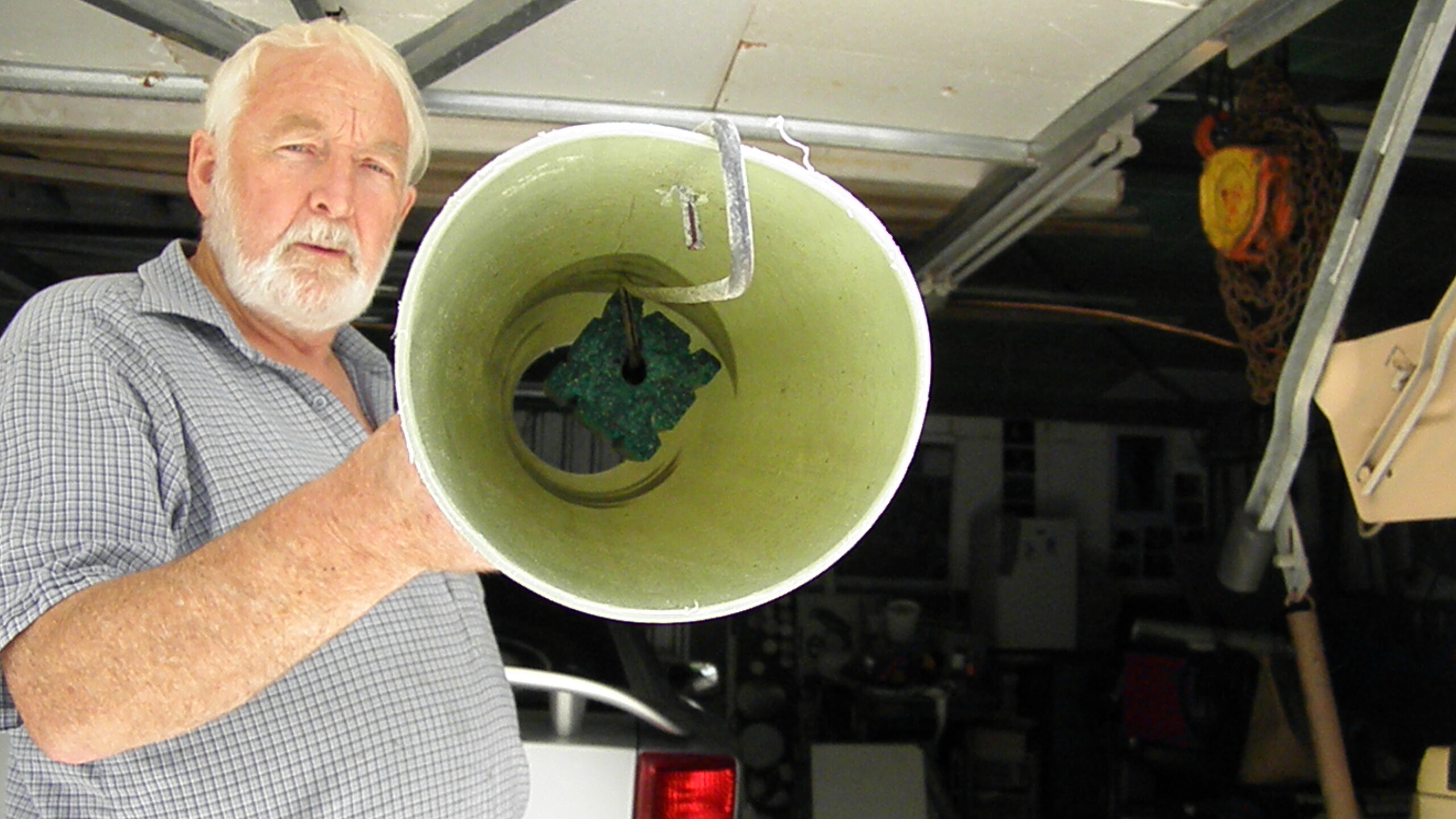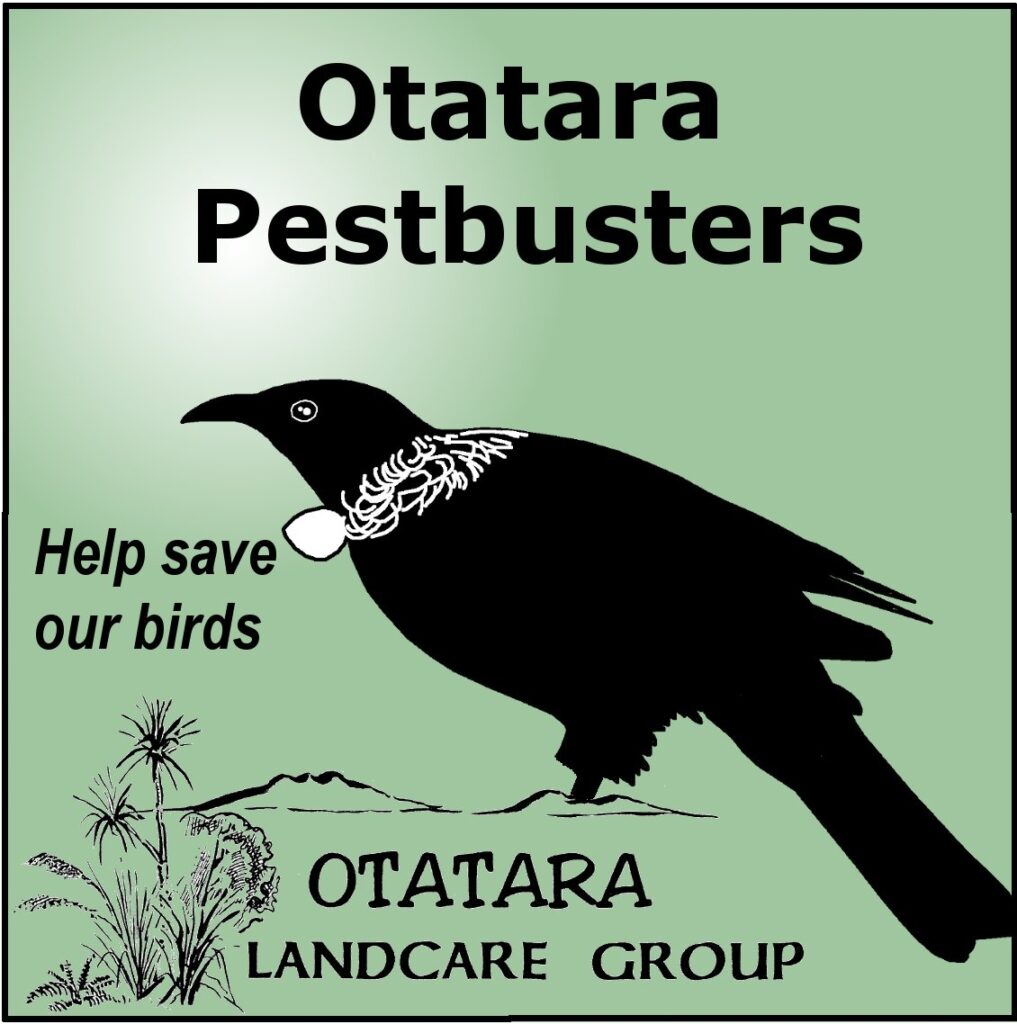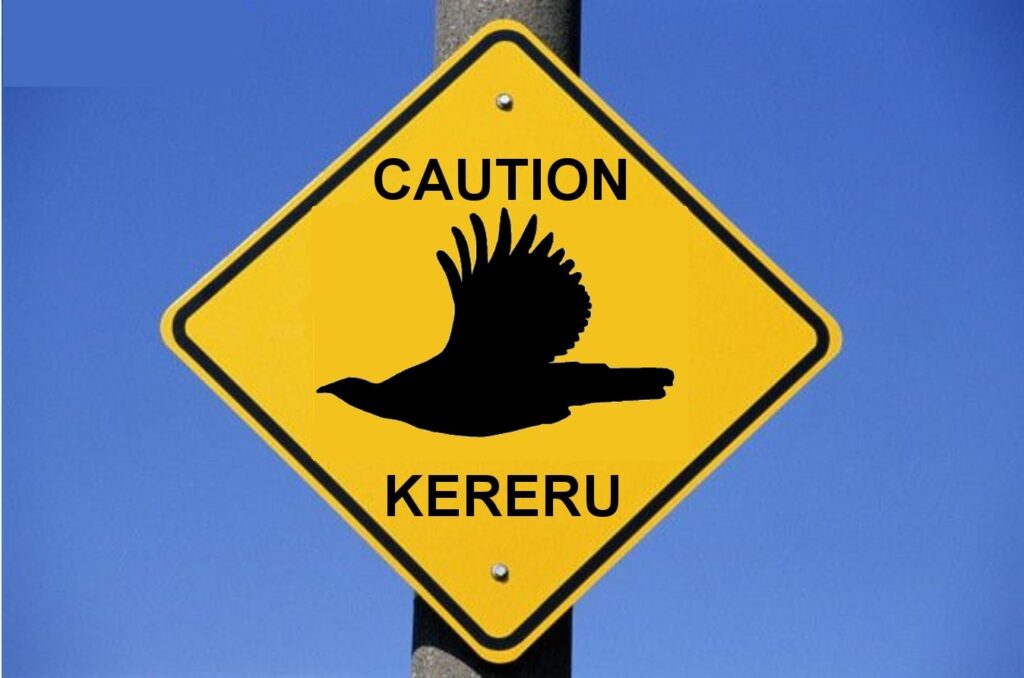A few years ago Otatara resident Russell Evans underwent a heart bypass. While at home recuperating from the surgery, the bird sanctuary owner gazed out of his window at all the native tui and kererū and decided that more needed to be done to protect them.

Otatara is a suburb of Invercargill, with 3,000 residents and many acres of native bush. Otatara Landcare Group was already operating but concentrated mainly on a DOC-owned piece of land called Bushy Point, tackling predators and planting native bush. Meanwhile, Russell started thinking bigger.
“I took in a proposal to do the whole lot [of Otatara], got a subcommittee together and now we do every single reserve.”

Russell and his wife May set up Pestbusters in 2010 to help tackle the threat of predators to native birds, including tui, NZ pigeon (kererū), bellbirds and kingfishers, by creating a more coordinated approach.
With help from Environment Southland and the Otatara Landcare Group, they started encouraging all residents to trap in their own backyards. Next, a few Pestbusters and Landcare members began trapping in the council-owned reserves bordering residential properties, striking a deal with the Invercargill City Council to provide annual funding for the bait and traps.
There are now 150 names down with Pestbusters, but Russell won’t be satisfied until every single person chips in – and that’s the biggest challenge: getting everyone involved and continuously trapping to prevent reinvasion.
“Where there’s bush, there are rats. If you don’t play your part, you will be the one reinfesting. Neighbours can’t kill the rats on your property.”
Over the years Russell has become a trapping expert, and through him Otatara residents can buy traps (sourced from Environment Southland) and poison at cost price. He’ll provide poison tunnels for rats and kill traps for possums, stoats, weasels, and ferrets, plus he offers trapping lessons and support. This is all on top of his ‘day job’ running a rehabilitation sanctuary for injured birds.
It’s too tricky to keep a tally of the bird numbers resulting from all the trapping, but the proof is in the chorus: “Twenty years ago there were hardly any bellbirds near my property; now you can hear them everywhere.”
Pestbusters includes a small group of dedicated volunteers who regularly patrol the reserves and check the traps. Otatara is a small community and word of mouth is generally enough to attract new recruits. Plus, the unpleasant reality of invasive rodents is often enough of an incentive to take action: “People hear about it from someone after they’ve been lying in bed listening to rats in the ceiling.”

Pestbusters keeps the momentum going via mail drops and emails, as well as a blog and a predator control map on their website. But that’s not all; after travelling overseas and noticing road signs warning motorists to be considerate of roaming wildlife, Russell, with help from the Invercargill City Council, organised 12 ‘caution’ signs about the kererū to go up around Otatara, as kererū often fly low across streets bordering the bush. Result: drivers are taking more care and Russell has noticed a definite drop in motorcar-maimed kererū.
Fact: Everyone can make a difference
If you’re keen to set up a Pestbusters equivalent in your own area, Russell says you’ve got make your whole community passionate about the difference they can make. “Get everyone involved. People living in bush areas will notice the birds are in decline. Get them interested in the bird life. When you start poisoning [predators], get them to see the difference.”
Example: tui were breeding in the area, but DOC surveys showed that thanks to rats and possums the tui chicks didn’t survive past babyhood. Now, Russell says, juvenile tui as well as kererū can be spotted flying around. And his rehabilitated birds keep coming back for more – “they reckon we’re a good hotel” – to have a feed and show off their new babies. “It’s pretty magic releasing injured birds back into the world.”
And the best bit? It’s all self-taught. “Every ordinary person can make a difference. We don’t have university degrees, but they [the birds] have taught us so much. We learn something new every single day.“

